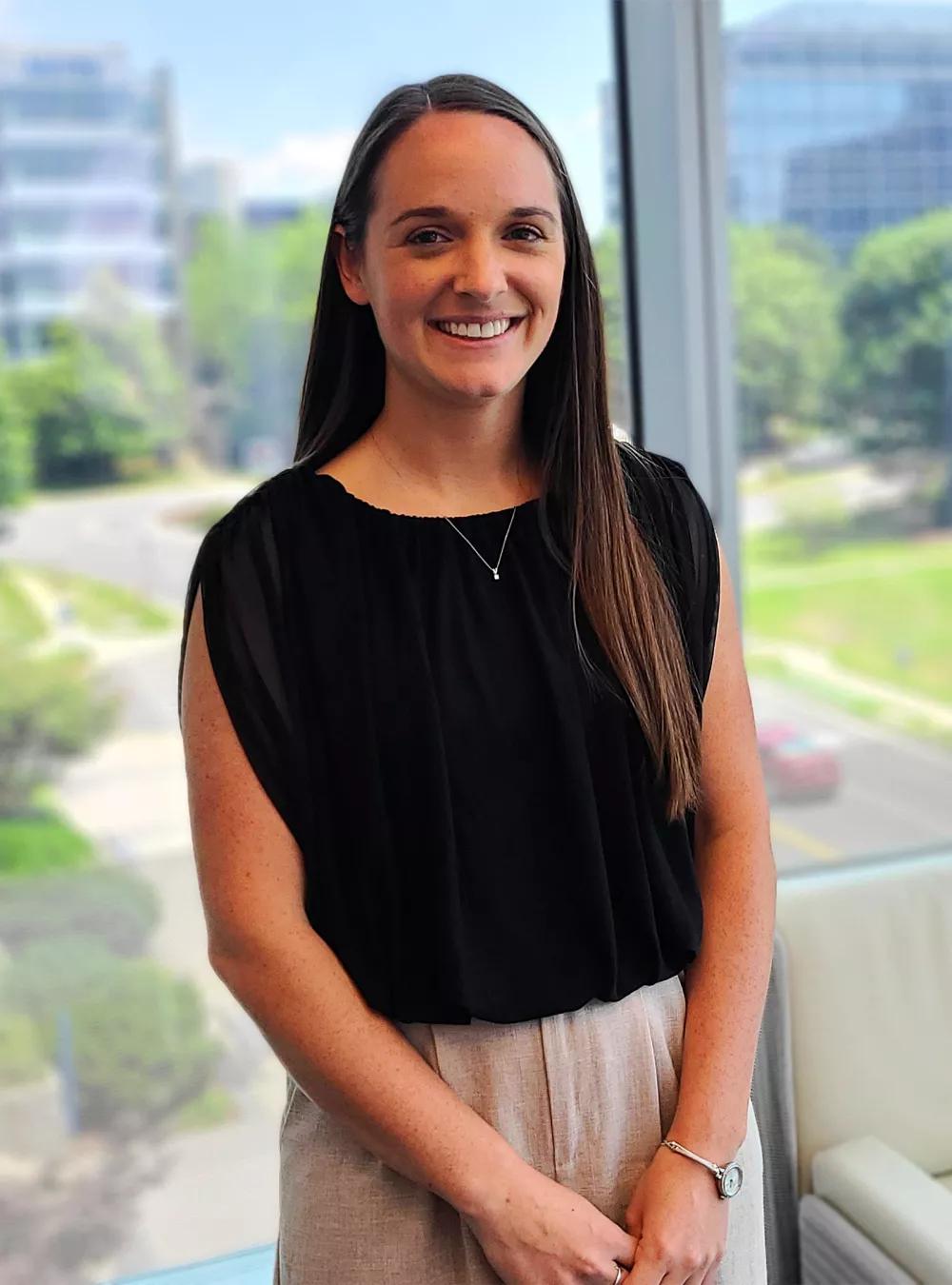Jessica Centers, Ph.D., balances enthusiasm for engineering with her drive to enact policy that encourages young people to get involved with science, technology, engineering, and math (STEM).

A Passion for STEM at the Junction of Engineering and Policy
Jessica Centers’ Indiana middle school became a STEM academy when she was in 7th grade. She wasn’t sure what to make of it, but her mom supported the change, easily imagining an engineering future for her math-proficient daughter.
“My response was, ‘I don't know why you want me to be a train conductor,’'' Centers recalls with a laugh. She quickly learned of an engineering world beyond railroad tracks and pursued the STEM curriculum through high school.
Centers went on to graduate from the Milwaukee School of Engineering with a degree in electrical engineering, then followed her advisor’s encouragement to continue her education in a Ph.D. program at Duke University.
In addition to her regular, highly technical engineering course load at Duke, Centers found respite sitting in on conversational science policy courses.
“I loved listening to policy folks and lawyers debate scientific topics,” she says. Before she knew it, her ancillary interest turned into a tech ethics and science policy master’s degree.
Last July, she joined MITRE officially as a communications engineer, but she spends a portion of her time on policy projects. Her team’s most recent effort, funded by the National Science Foundation, is building an artificial intelligence pipeline for students to work in the federal ecosystem—a critical need as STEM workforce demand outpaces supply.
Centers shares three key pieces of advice she shares with STEM prospects.
There are structural things you can do to improve the STEM ecosystem—like put funding in the right places to get people in a better mindset.
Find What Motivates You
At MITRE, Centers works on radar signal processing for a variety of military applications. In short, she calls herself “a forensic scientist of signals.”
Pursuing defense work was particularly appealing because Centers’ twin brother and only sibling is a captain in the U.S. Army. She remembers feeling distraught about his safety when he first enlisted.
“Radar signal processing can help provide intelligence to military decision makers about where ships should go or where an airplane is coming from,” she says. “It could save lives.”
From the policy side, Centers found inspiration from the rollercoaster of emotions and ambivalence she experienced throughout her engineering journey.
“I’ve learned that there are structural things you can do to improve the STEM ecosystem—like putting funding in the right places to get people in a better mindset with a better support system, better mentoring, and better exposure to what they could be doing,” she explains.
Embrace Bold Optimism
Centers remembers times in school where she could have asked for help from teachers earlier in the learning process. Having the extra confidence to do so would have saved her undue agony.
Earlier this year, she attended the first ever National STEM Festival, where middle and high school students presented innovative projects to the public and industry leaders. Centers says she was blown away by their assuredness and “bold optimism.” In the same breath, she felt concern for students who may not see themselves in rooms like these.
“I'm really interested in understanding how students get to that level of excitement and confidence about their cool ideas,” Centers says. Exploring what’s behind their enthusiasm is a key driver in her work helping direct policy and funding, and widening STEM pathways for more K-12 students.
Think of Engineering as Creative
Engineers are reputed to be regimented, black and white thinkers. As someone who was drawn to the often-overlooked creative side of engineering, Centers hopes to shift the conversation.
“Unfortunately, a good chunk of people think of STEM careers as sitting in front of a computer and coding all day,” she says. “But there’s a lot of flexibility and multiple ways to accomplish certain goals.”
Included with a more open-minded approach is the reality that things will not always go as planned. Not only is making mistakes acceptable, she says, it’s an essential part of the process.
“Learning that it's OK to be bad at something and get better at it is important because you're not going to come in and be able to do everything,” she says. “You have to get comfortable with failure.”
Join our community of innovators, learners, knowledge-sharers, and risk takers. View our Job Openings and Student Programs. Subscribe to our MITRE 360 Newsletter.